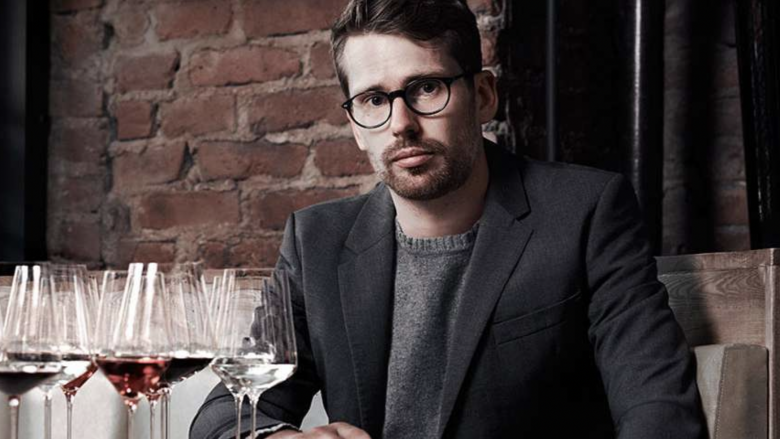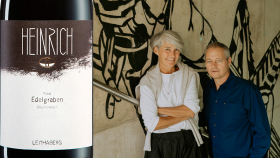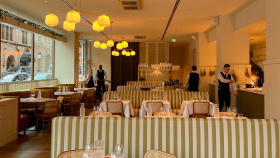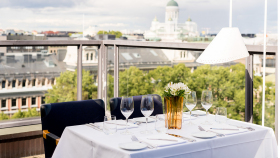Arvid Rosengren's insights into the ASI Best Sommelier of the World

With the 2023 edition of the ASI Best Sommelier of the World competition around the corner, we asked former winner Arvid Rosengren for advice and insights into the competition.
Arvid Rosengren, born and raised in the south of Sweden, won the Best Sommelier in the Nordic Countries in 2009. In 2013, he won the Best Sommelier of Europe. But his crowning achievement was winning the ASI Best Sommelier in the World competition in 2016, becoming the 15th person to win the title.
Professionally, he has worked in Stockholm, the UK and Copenhagen, before he finally settled in Manhattan. Today, among other projects, he runs the consulting company King Street Sommeliers, together with two partners.
As a former winner of the ASI Best Sommelier of the World, Arvid Rosengren has been involved in organizing the 2023 competition. Anything he says in the interview below is a general comment about the competition, and not to be taken as a concrete example of what will happen at this year’s competition.
Can you start by talking about the Best Sommelier of the World competition itself?
Effectively there are three parts. Theory, which is mostly written, but some parts are oral. Then there’s tasting in various formats, from written to blind tasting identification where you’re supposed to say what it is. Mostly it’s descriptive. You’re supposed to speak about the wine and go into depth about how you would utilize the wine. How you would serve it, what food would you pair it with. Where would you put it in a menu?
And then there’s a practical element, which is basically service skills being put to the test.
Everyone who’s there is already the best of their respective country. You’re competing against 60 or 70 different nations. As you can imagine, in the beginning it’s tasks that weed people out. There’s a big theory test, there are quick blind tastings and quick service elements.
At this stage, you’re competing against so many people that these things are pretty quick. We’re talking about things that are usually two or three minutes.
How many people get eliminated at this stage?
It goes down from 60 or 70 to about 10 to 15. The magic number is 12 to 15 and they go on to the second day.
Theory counts for a whole lot at this stage, as does the blind tasting. A long service element is not feasible with 70 candidates — it’s sort of the icing on the cake that lets the judges know that the person is capable of working as a sommelier. They’re not just someone who’s read all the books. The service gets more dominant the further you get into the competition, so there’s more service in the semi-final and then way more service once you get to a final.

How are the tasks given? Do they use actors?
It’s people who are involved in the organization of the competition. Very rarely have they used professional actors.
It’s some sort of service element, but there's added difficulty. It could be that you walk into a room and there are eight people seated, and there's another table with two people over there. You’re now the sommelier of this restaurant. You have two tables seated. One is waiting to be served a bottle of wine that they've ordered. That table over there would like to talk to you about Champagne options, or something like that.
You know how much time you have to work with. And what then usually happens is when you walk over to the table of, let’s say, people who want a bottle of wine decanted, there’s something tricky about his element. Maybe the bottle of wine they’ve asked for doesn’t really exist. That vintage was never made.
Or you walk over and you have all the vintages except the one they asked for. Or everything goes smoothly and you're decanting, and then one of the guests at the table tells you, “oh, actually, you know what? I would like a bottle of white wine to start before we go onto the red”.
There are a lot of tricky things that get thrown at you as you go along. But nothing trickier than a sommelier deals with every day in a restaurant.
How many people get through to the finals?
Three. Occasionally four, if they're in a tie-breaker situation, but the magic number is three.
All the 12 or 15 candidates get brought up on stage. There’s a sort of reality show-type elimination. Three people get to stay and two of them are brought backstage so they can’t see what’s going on. In turn, the three candidates do their finals and the final is a combination of things.
There’s an audience. It's being filmed, there are spotlights and a production element to it all. Controlling your nerves becomes so much more important the further you get into the competition.
There are a lot of tricky things that get thrown at you as you go along. But nothing trickier than a sommelier deals with every day in a restaurant.
At that second level, where a lot of people are eliminated, what sort of problems do you see?
The most common thing is that someone was either too nervous to actually listen to the instructions or didn't understand when something happened that they were supposed to problem solve.
At the final stage, where the people are at the absolute top of the group, what trips them up? Or do some people just have a performance edge?
That's a good question. It’s more of the same, like blind tastings. If someone is just exceptionally good at it or lucky at that stage, and just nails every wine or beverage thrown at them, they are going to rack up a whole lot of points. But in the service element, it can be something happens where they just don’t get it, or they don't make it on time. Timing is always much shorter in the final.
Usually, these tasks are more straightforward, but all of a sudden you have a camera in your face and a microphone strapped to you and everything is slower.
When you were doing it, how did you handle your nerves?
I’ve watched a little bit of myself afterwards and I am nervous. You can hear me breathing for the first minute, but I had spent a whole lot of time trying to conquer that element. Because I’m not naturally a person who likes to be on stage. I had to force myself to do it, as strange as that sounds. I meditated every day for well over a year. I worked with an acting coach, like an improv acting specialist, just to help me with posture and how to stand and how to breathe, so when you’re on stage you can look more natural and confident than maybe you are.
What I tell candidates now when they're working, is there are so many things beyond just cramming all the theory facts and the blind tasting, like working on your physical and mental health, so you can be in a good place when you’re on stage.
When the candidates come in at the beginning, are there some who just stand out?
To a certain degree. I think we can always say who the top 20 will be. The playing field has gotten a whole lot more level in the past competitions, too. It used to be that there were always some favorites. I think there's been a whole lot of work done on making everything more transparent so that the candidates know the parameters that they are being judged on. Also, just the fact that the internet’s out there and everyone has access to the same information—you can imagine that 20 years ago it wasn’t very easy for a candidate from Kazakhstan to have access to the same sort of wine knowledge as a candidate in France.
We’ve seen some real upsets in the past two or three competitions where candidates from non-wine countries do really, really well, because they have access to all the same stuff. It was kind of an upset when I won. It was the second time a Scandinavian had won in 10 years. People were like, “what? You don’t even make wine — do you drink wine?”
It used to be a very sort of French and French-adjacent affair. And it’s become less and less so.
The Association de la Sommellerie Internationale (ASI) Best Sommelier of the World contest takes place every three years. The coming competition will take place in Paris from 7th to 12th February 2023.
Do like the Pros - search 2500+ wine lists











